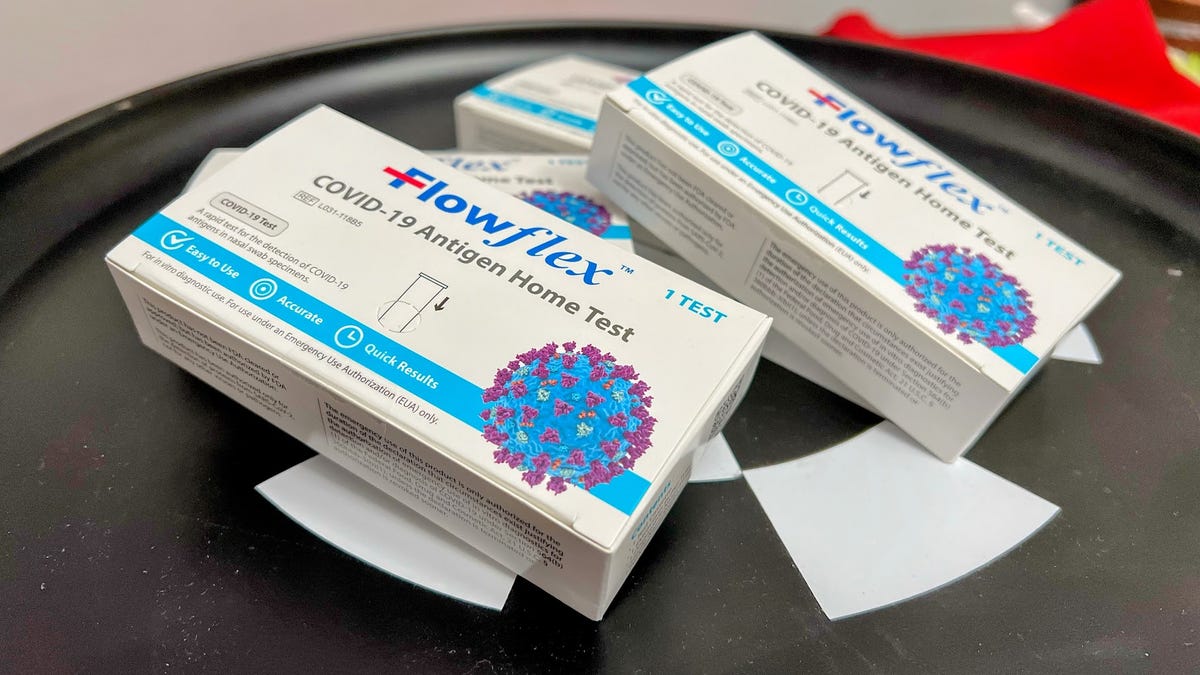At-home COVID-19 tests less effective at detecting omicron variant, FDA cautions
Early data suggests antigen tests, like those used in at-home rapid test kits, "may have reduced sensitivity" to the highly contagious new strain, the agency said.

Since earlier studies relied on heat-inactivated COVID-19 samples, rather than live virus, the tests' weaker accuracy wasn't detected immediately.
At-home rapid COVID-19 tests may not be as reliable in detecting the new highly contagious omicron variant, according to the Food and Drug Administration.
The announcement, made Tuesday, is based on preliminary studies by the National Institutes of Health's Rapid Acceleration of Diagnostics program, which found antigen tests, like the ones available in at-home kits, do detect the omicron strain "but may have reduced sensitivity," according to the FDA.
Last week, a separate NIH study suggested antigen tests were able to pick up the omicron variant as well as they did other strains, Politico reported.
But that research relied on heat-inactivated COVID-19 samples, rather than live virus, so the poorer performance wasn't detected earlier, the agency said in a release. The FDA says using live virus samples "represents the best way to evaluate true test performance in the short-term."
Leading test-kit manufacturer Abbott said its BinaxNOW antigen test has detected omicron in live virus tests with equivalent sensitivity to other variants.
"We know our tests are a critical tool in controlling [the] spread of the virus and we will remain vigilant in conducting analyses and closely monitoring test performance," the manufacturer said Tuesday. "We have a network of research, academic and public health collaborators strategically placed around the world that are actively sequencing viruses to look for the next viral threat, including COVID variants."
The Biden administration has made free and accessible antigen testing a key component in the war against COVID-19, directing insurance companies to start reimbursing members for at-home rapid test kits in January and purchasing some 500 million kits to distribute to anyone who requests one via a special website.
Omicron is the dominant strain of COVID-19 across the US, accounting for 58.6% of infections as of Dec. 25, according to data from the US Centers for Disease Control and Prevention.
Experts believe its rapid spread has been enabled by the variant's faster incubation period and ability to overcome immunity generated by vaccination or past COVID-19 exposure.
Early data suggests that, while it's more easily transmitted, omicron may cause less severe disease and is less likely to result in hospitalization or death compared to delta and other variants. But health experts urge the public not to mistake that to mean omicron doesn't pose a serious threat.
"Surely, we have learned by now that we underestimate this virus at our peril," World Health Organization director-general Tedros Adhanom said in a Dec. 14 briefing. "Even if omicron does cause less severe disease, the sheer number of cases could once again overwhelm unprepared health systems."
If a person tests negative on an antigen test but has coronavirus symptoms or was likely exposed to the virus, they're encouraged to undergo a PCR test, which takes longer to deliver results but can show if there is an active coronavirus infection. (Antigen tests only detect the presence of certain virus proteins.)
Individuals who test positive for COVID-19 using an antigen test are urged to isolate and seek follow-up care with a medical provider.

